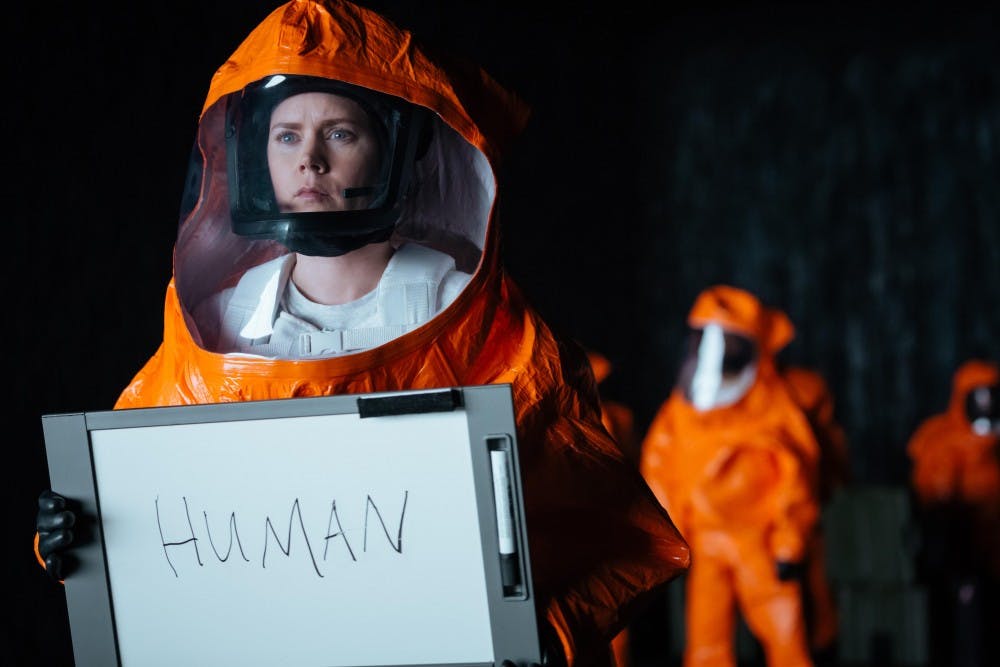Twelve spaceships hover ominously over the Earth in Denis Villeneuve’s latest film “Arrival,” but this time the aliens aren’t here to blow up the White House. They’re here to blow your mind.
“Arrival,” like most big sci-fi films that take a more thoughtful approach to their material, has one big mystery and a bunch of damaged humans who have to fight off their demons to answer it.
Enter linguist extraordinaire Dr. Louise Banks, played by Amy Adams, and conveniently all-purpose man of science Ian Donnelly, played by Jeremy Renner. They need to figure out how to talk to aliens.
As the two are whisked away to Montana by Colonel Weber, played by Forest Whitaker, to teach the aliens how to talk, I already think I’ve figured this one out.
Louise, still haunted by the death of her daughter, will fall in love with Ian, himself probably a distant workaholic who needs something in his life beyond a never-ending math equation.
The aliens will probably turn out to be ethereal little balls of light that gently remind us that anyone can connect with anything if they really want to. Maybe they’ll take the form of Louise’s dead daughter in the third act to get the tears flowing and teach an Important Lesson. Love will turn out to be the fifth dimension.
Not quite. Upon meeting the aliens, we’re shown that they’re actually pretty spooky seven-legged critters that sound like whales and use ink from their weird hands to write complex circular sentences. As the film wears on, Villeneuve starts to reveal that Louise’s relationship with her daughter might be more complex than originally let on, and all the more meaningful for it.
What’s impressive about the film is how, even though it gives viewers everything they need to figure it out in the first half hour, it still manages to drop huge revelations throughout the movie. Just like the squid aliens hide themselves behind a translucent screen and a chamber of white smoke, so too has Villeneuve hidden the big reveal in plain sight. It’s a refreshing change from the willfully obscure and bloated Nolan features of the last couple years.
That’s not to say the movie isn’t without filler. Of course there’s the mandatory tension between our good scientists and the ignorant military they serve that does little but distract from thoughtful human-to-squid interaction and mother-daughter drama. There’s also the looming threat of China’s gung ho navy man General Shang, played by Tzi Ma, who after a game of Mahjong with the squids, fears they’re planning an attack of Roland Emmerich proportions.
Those are small complaints, though. At the heart of “Arrival” lies the assertion that language shapes how we think, and almost everything in the film reinforces that theme. That thematic cohesion isn’t rare in the arthouse circuit, but as big holiday joints go, it’s almost unheard of.
Made on a budget of $50 million, maybe “Arrival” is as much the former as it is the latter.
See this movie without expectations. Don’t Google the plot twist. By subverting the language of cinema, Villeneuve’s crafted a movie set to melt your face and tug at your heartstrings.
Bryan Brussee
bbrussee@umail.iu.edu




